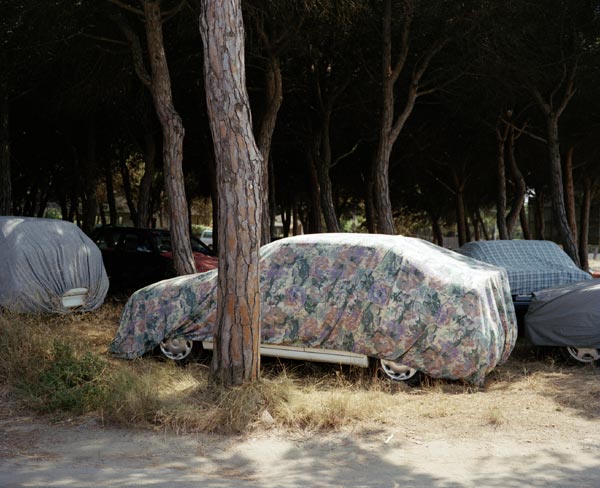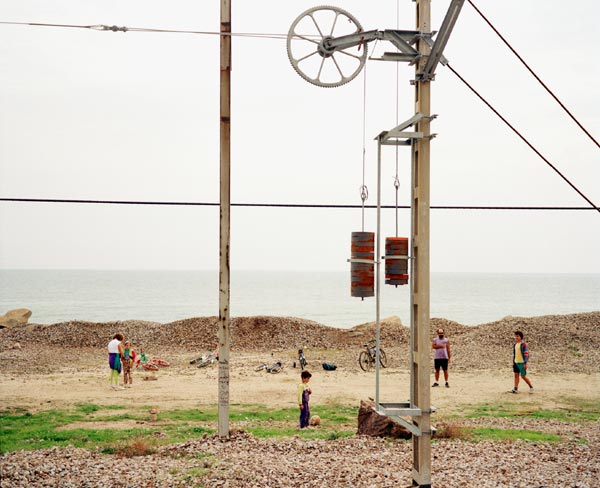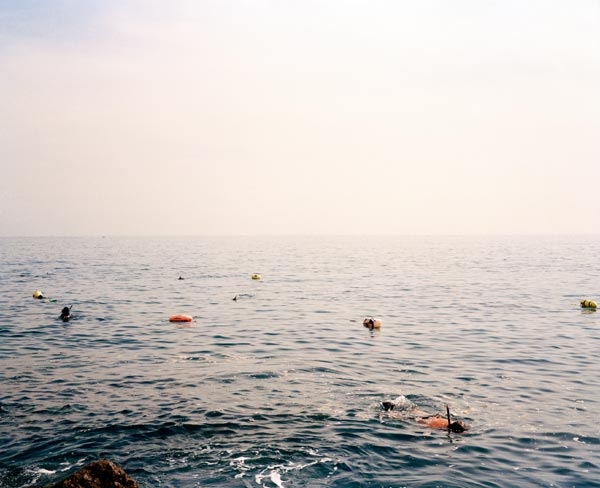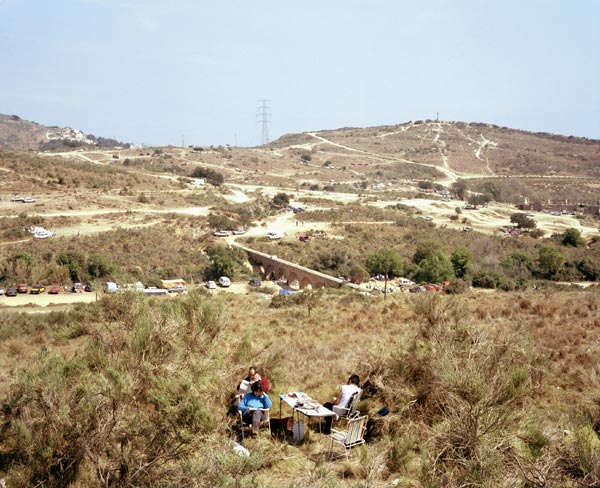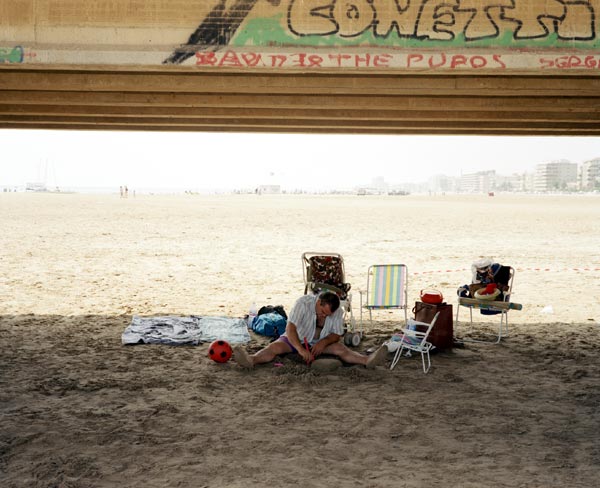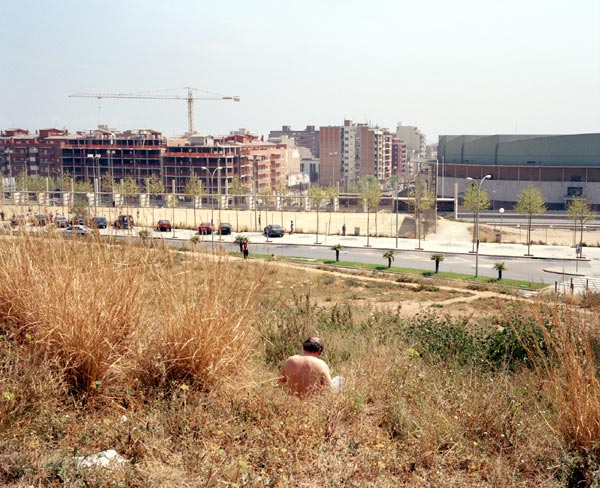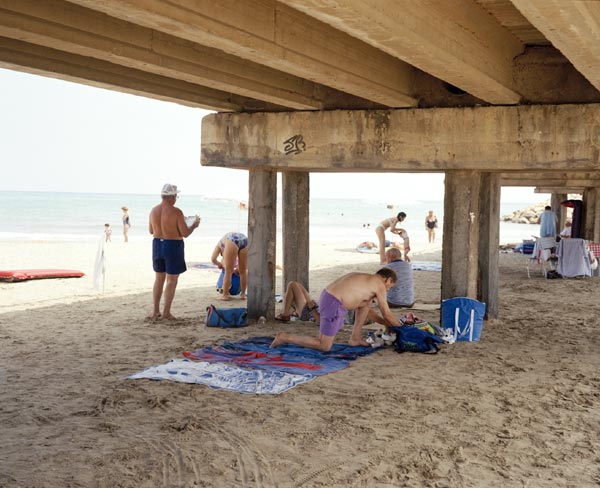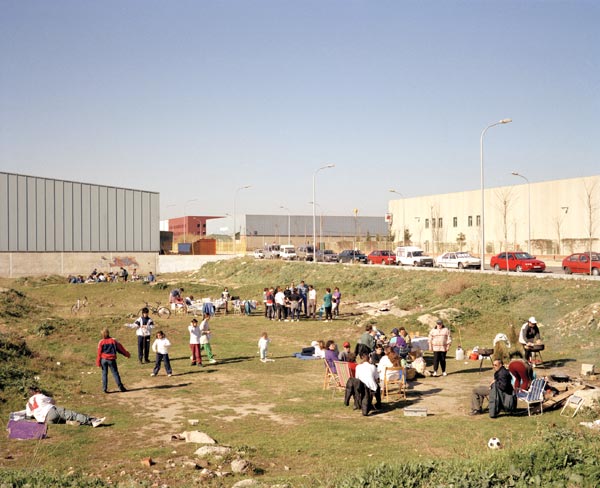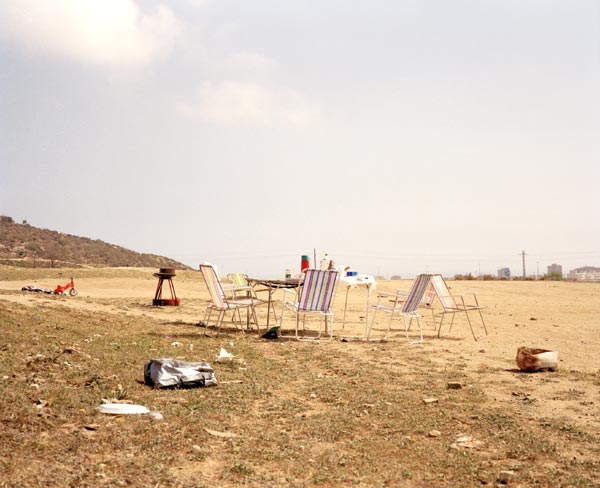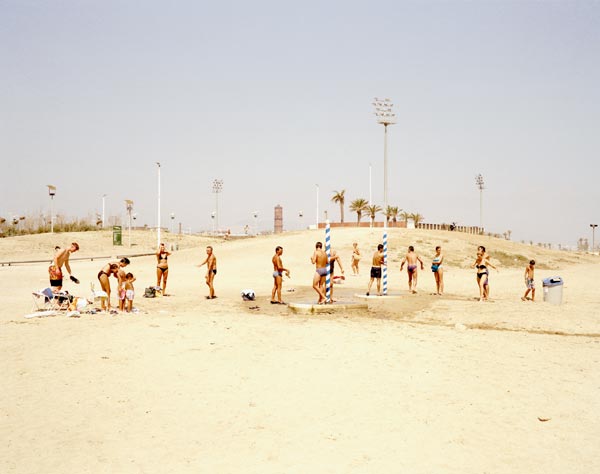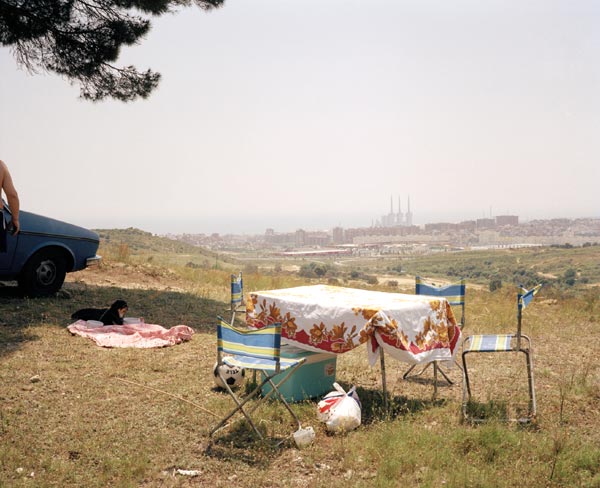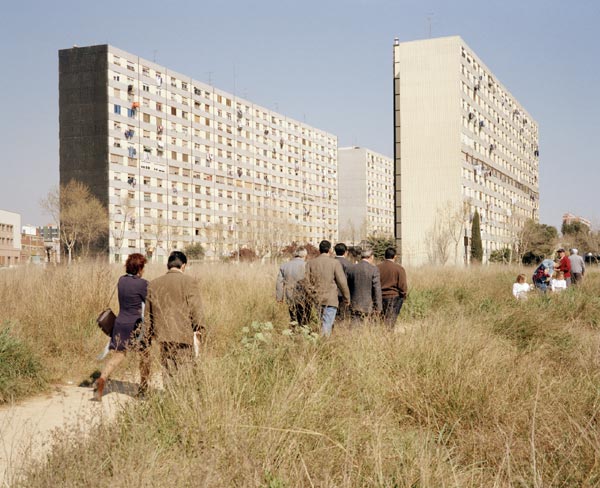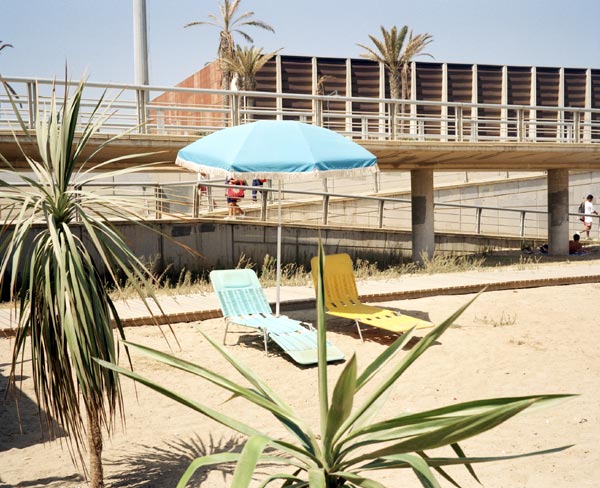Perfect Distraction
 It seems we live in a leisure society. However, the leisure here is not that of idleness, but of activity -the so-called 'active leisure', which according to the sector's industries, forms the ideal complement to work. Thus, those who have spent all day at the office are recommended to take up paintball, bungee jumping or rafting; while the scaffolder can haul himself off to Port Aventura to see the world. For simply to do nothing, besides being downright uneconomic, is looked at askance; and rest gets turned, as if by magic, into a business. Consequently, we get the production of areas for organized leisure which resemble the areas organized for production.
It seems we live in a leisure society. However, the leisure here is not that of idleness, but of activity -the so-called 'active leisure', which according to the sector's industries, forms the ideal complement to work. Thus, those who have spent all day at the office are recommended to take up paintball, bungee jumping or rafting; while the scaffolder can haul himself off to Port Aventura to see the world. For simply to do nothing, besides being downright uneconomic, is looked at askance; and rest gets turned, as if by magic, into a business. Consequently, we get the production of areas for organized leisure which resemble the areas organized for production.
If you take a stroll one sunny Sunday morning through the peripheries of Barcelona you'll come across a strange landscape. Between the motorways and housing blocks, the industrial states, the commercial centres and sports complexes; between the nature parks and the theme parks, at the edge of all this contemporary urbanization, you will find the marginal areas where folk flock together every week to spend their free time. The question is: Why do people turn these residual spaces into the centre of their leisure activity?
Lewis Baltz said that the most untamed pockets of wilderness in the Western world were to be found at the peripheries of big cities (while in fact the idea of a nature park implies a certain intervention and a long list of prohibitions). According to Baltz these marginal spaces found at the city's edge are where we can best experience the absence of order and the social laws which keep us in check.
About Xavier Ribas
Born in Barcelona (1960). Studies of Social Anthropology at the University of Barcelona (1990) and Documentary Photography at the Newport School of Art and Design (1993). Since 2000 is Senior Lecturer at the University of Brighton. His work has been recently featured in BLINK!, the Phaidon survey of contemporary photographic practice. Exhibitions include the Biennale d'Art Contemporain de Lyon, The Photographer's Gallery in London, the Old Museum Arts Centre in Belfast, and the Forum de l'Image in Toulouse.

